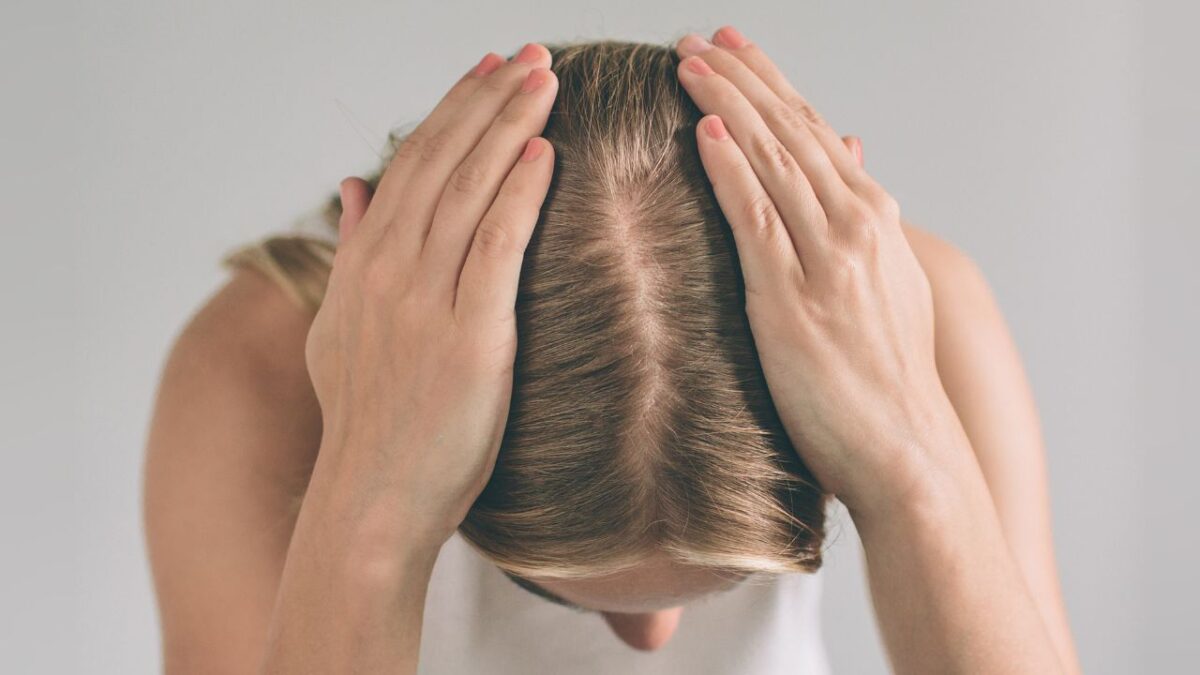Can Menopause Lead to Hair Loss? Exploring the Facts

The Connection Between Menopause and Hair Loss
Menopause shakes things up in our bodies, especially with our hormones. Estrogen and progesterone, our hair’s best friends, take a dip. This gives androgens, the male hormones, a chance to mess with our hair follicles, making our hair thinner and grow slower. It’s like a hormonal tug-of-war, and unfortunately, our hair gets caught in the middle.
For some of us, this means our hair starts thinning out, especially on the top of our heads. It’s called female pattern hair loss (FPHL), and it’s pretty common during menopause. But don’t worry, we’re going to talk about how to handle it.
Other Factors Contributing to Hair Loss During Menopause
It’s not just hormones that play a role in hair loss due to menopause. Our diet, stress levels, and even our thyroid can join the party:
- Nutrition: If we’re not getting enough iron, vitamin D, or protein, our hair might start to thin out.
- Stress: Menopause can be stressful, and stress can lead to hair loss. Finding ways to relax is key.
- Thyroid Issues: Sometimes, our thyroid gets out of whack during menopause, which can also lead to hair loss.
Identifying Menopausal Hair Loss
If you’re wondering whether your hair loss is due to menopause, keep an eye out for these signs:
- Your part might get wider.
- You might see more hair on your pillow, in the shower, or on your brush.
- Your hair might feel thinner overall, especially at the crown and hairline.
It’s important to know that menopausal hair loss looks different from other types of hair loss, so keep an eye on these specific signs.
Managing and Treating Hair Loss During Menopause
The good news is there are ways to manage hair loss due to menopause:
- Hormone Replacement Therapy (HRT): This can help balance out our hormones and might help with hair loss.
- Topical Treatments: Products like minoxidil can stimulate hair growth.
- Lifestyle Changes: Eating right, managing stress, and taking care of our hair can all make a difference.
Prevention Strategies
Preventing hair loss during menopause is all about taking care of ourselves:
- Eat Well: A diet rich in nutrients can support hair health.
- Manage Stress: Finding ways to relax can help keep our hair healthy.
- Stay Active: Exercise can improve our overall health, including our hair.
When to See a Doctor
If your hair loss is severe or you’re worried about it, it’s a good idea to talk to a doctor. They can help figure out what’s going on and suggest the best treatment.
Conclusion
Menopause is a big change, but it doesn’t have to mean saying goodbye to our beautiful hair. By understanding what causes hair loss due to menopause and taking steps to manage it, we can keep our locks looking lovely. So, let’s embrace this new phase of life with confidence and a great hair care routine!